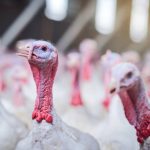RECOVERY
Recovery is more than “getting back on your feet.” It means psychological and physical adjustments, and there will be have to changes for the family and spouse too. “A heart event affects the entire family,” says nurse Kendra Ulmer. “One of the most important things you can do to speed recovery is to accept what has happened.”
Recovery can be an emotional roller coaster, and not just for the patient. Ulmer encourages everyone to recognize they need a positive attitude, “even though it feels like this is easier said than done.”
Read Also

Celebrating women in agriculture
If you’ve been a long-time reader of Country Guide, you’ll have read many articles in our pages over the years…
While a major illness can result in feelings of fear, anxiety, anger, denial and frustration, it’s important to recognize that all these feelings are normal.
Never compare yourself to someone else. Recovery from a heart event takes time. You’re going to have setbacks, and good days and bad. It’s common to ask yourself if you will have another heart attack or develop a condition. It’s common to wonder what kind of work will you be able to return to, and to ask “why me?”
The process of healing the heart involves physical, emotional, mental, social and spiritual aspects.
It’s not uncommon for your family members to notice some of these emotions too, especially around a farm where everyone works closely together.
After you are home from the hospital and ready to begin to look at your new lifestyle, your spouse may seem depressed or more sensitive. It’s important to be patient with your loved ones since they are also trying their best to make adjustments in their roles, schedules and routine.
“Some patients openly admit ‘this is probably harder on my family than me,’” says Ulmer. It’s important to remember that no family copes smoothly, partly because change is awkward. Even when change seem positive it’s still a new way of living and the adjustments are always challenging.
Farm families and farming communities are known for their generosity and pulling together in a time of crisis. A heart attack or unexpected heart condition is no different. Here are a few ideas to help you adjust roles and rules to make room for rehabilitation in your lifestyle:
Try not to overreact to these struggles — they are normal.
Flexibility, openness, understanding and acceptance of the situation can help.
As a family, work together to make sure your loved one remains an active participant in the rehabilitation, not just a spectator.
Look at making lifestyle changes a challenge and try to develop a realistic understanding of the medical and family implications.
Discuss openly these implications as you grow into a “new normal” lifestyle.
Exercise
Farmers set their own pace. That’s what makes them successful. But it can also be what makes their recovery more difficult.
After a heart attack, don’t expect to perform your usual tasks with the same vigour or speed. In fact, your doctor might not even want you to return to your day-to-day activities at all.
“It’s important to consult your physician about the work activities you plan to return to on the farm before you resume your regular work tasks,” says Ulmer. She also recommends explaining all the types of activities that you regularly do, even if you don’t think they’re very strenuous, such as greasing the tractor, working with livestock, changing shovels on the air drill, or just picking apples.
Start physical activity gradually to allow your heart to heal. How much exercise you do will depend on your medical condition, type of treatment you received (i. e. surgery), your fitness level, and what you enjoy.
Most important, avoid heavy or more difficult activities, and limit the time and amount of work you do with your hands over your head, since cardiac output is increased when fighting gravity and can lead to strain or overexertion.
Remember, your body has changed and you need to be aware of any strain on your heart. Doing something as routine as gripping an object tightly when lifting, or something as simple as shovelling grain, can increase your blood pressure, resulting in a greater workload on the heart.
Take recovery one step at a time by incorporating exercise into your day. Just don’t overdo it.
Making a change
Adopting healthy habits won’t cure all that ails you. However, doctors do believe as much as 70 per cent of all chronic disease, such as diabetes, high blood pressure, heart disease and some forms of cancer can be warded off with timely and sensible lifestyle changes.
The question is, is it too late? Are you too old to get any benefits from eating heart smart, quitting smoking, getting more exercise, losing weight and drinking less?
The latest research suggests that whenever you start, these changes do make a difference, particularly in the quality of your life.
One positive change leads to another and soon, says Ulmer, you’ll discover you’ve adopted a whole new healthy way of life.CG
The Silent Disease
High blood pressure is a silent disease. In fact, one out of four people with high blood pressure are unaware of their condition. That’s even though we know that high blood pressure can be dangerous when left untreated, and that it can also increase your risks of a stroke or heart attack.
“It’s important for farm families to know their individual blood pressure numbers,” says Ulmer. Ignoring blood pressure is like having an oil gauge in your tractor and covering it with duct tape so you can’t read it.
You’d never do that because oil pressure tells you how well your tractor is working. It also tells you when there’s a problem that you had better get to the bottom of.
The same goes for blood pressure readings. Read the numbers, investigate the cause if something isn’t right, and fix the problem before it causes a heart attack or stroke.
There is only one way to find out if you have high blood pressure — have it checked by your health professional. And if you are diagnosed with high blood pressure (called hypertension), get it under control.
“Some only need to change their eating and drinking habits or become more physically active to bring their blood pressure back to normal,” Ulmer says. “Others need medication.”
Steps to control your blood pressure:
Control your weight.
Cut back on alcohol.
Cut back on salt.
Eat foods rich in potassium.
Quit smoking.
Be active.
Take time to relax.
If you are taking medication, take it as your doctor prescribed it.
If necessary, learn to check your blood pressure yourself.
A Healthy Heart Needs Healthy Food
Get your weight under control, especially those extra pounds around your middle that put you at risk. Waist measurements larger than 35 inches for women and 40 inches for men are strongly linked to heart disease.
The most important step to good nutrition and watching your waistline is making gradual changes you can stick with.
Good nutrition for your heart includes:
A variety of food from Canada’s Food Guide. This provides you with a wide range of vitamins and minerals.
Eating less total fat, especially less saturated and trans fat.
Soluble fibre from fruit, vegetables, whole grains and legumes.
Two to three servings of fatty fish each week.
Skim or low fat dairy products.
Small portions of lean meats and skinless poultry.
Less sugar, salt, caffeine and alcohol.
———
Four more farms will feel the panic and fear of heart attack before today is over, adding up to 1,500 more Canadian farms this year.
“No one plans to have a heart attack or heart surgery,” says Kendra Ulmer, registered nurse with the Agricultural Health and Safety Network at the Canadian Centre for Health and Safety in Agriculture at the University of Saskatchewan.
Farmers aren’t immune to heart conditions. In fact, they may be even more vulnerable. Ulmer has seen first-hand how heart disease and heart conditions can take their toll on farmers and on their families and their farms.
But that doesn’t mean farmers are powerless. Last issue, Ulmer recommended strategies to prevent heart illness on your farm. Below if heart disease does strike, what can you do to recover, so you and your farm get back your health?
“There are keys to managing heart conditions for everyone,” Ulmer says, “including farmers.”















